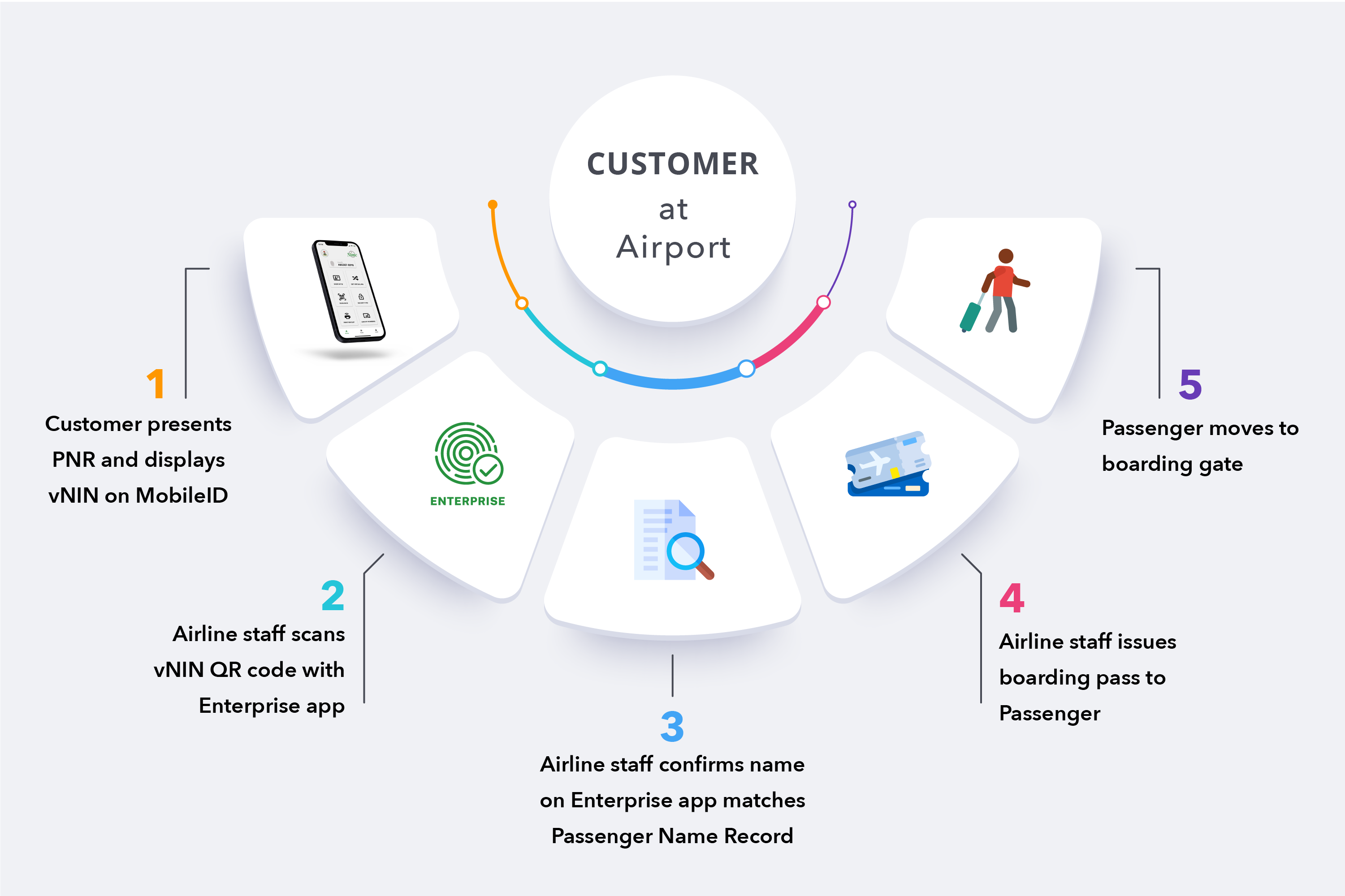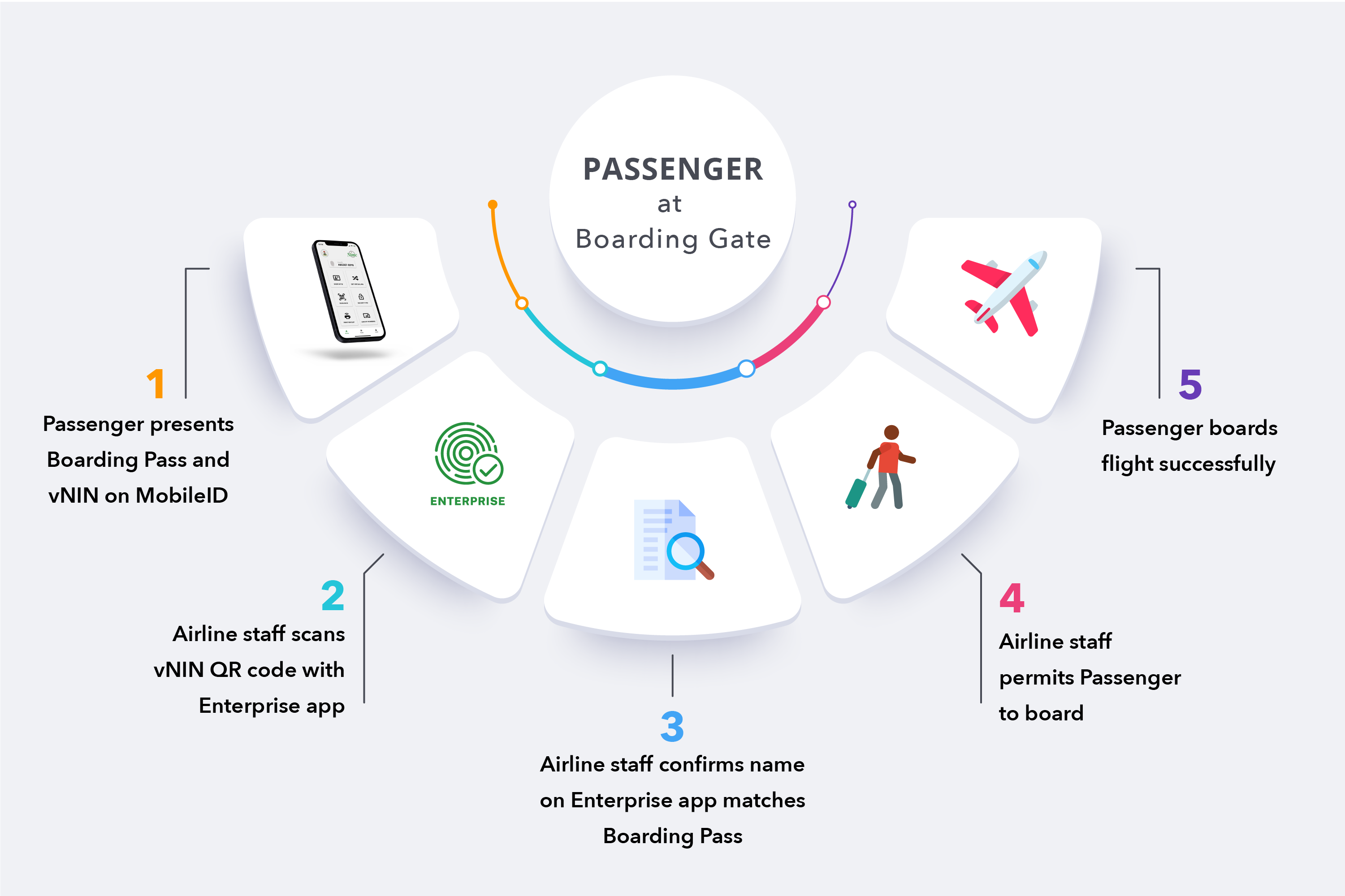
¶ Pain Points
- Many persons use inventive or fake names to purchase airline tickets for domestic travel.
- Touts and those wishing to mask their identity, get creative with false or fake documents to collect boarding passes.
- A variety of non-approved Photo-Identity Documents are submitted during validation of credentials, including ATM Cards, expired company/university ID Cards, expired passports and more.
- Not having an accurate idea of whom is boarding a flight is a security disaster in the making.
- In the event of an unfortunate air accident, identification of passengers becomes all the more difficult when the Flight Manifest is full of misleading data.
¶ Mitigation
- Enforce the laws which require the submission of a verifiable NIN to purchase a ticket or board a flight.
- Ensure there is a proper audit trail of all who purchase tickets, verify credentials or board flights within the country.
¶ Process Flow
¶ [A] Booking a flight online
This involves the customer needing to provide accurate information before a ticket may be issued.
The steps involved would be:
- Selecting the flight itinerary.
- Airline displays their EnterpriseID in a QR Code format for scanning using the NIMC MWS MobileID app, as well as a their ShortID so the person may opt to generate the Virtual NIN via USSD.
- The Virtual NIN is verified on the fly and the appropriate fields of the booking page filled with the information returned from the backend at NIMC
- The customer confirms the name and details (should not be permitted to edit) and proceeds to complete the booking.

¶ [B] Check-in and Boarding Pass collection
The customer arrives at the airport to provide their ID and collect their boarding pass.
Where a passenger claims not to be Nigerian, they may need to provide a foreign passport, to prove their claim that they do not possess a NIN, which (at the discretion of the Federal Airports Authority of Nigeria - FAAN), may require a scanned copy (as is done with foreign travel).

¶ [C] Final Boarding checks before departure
To mitigate situations where a person purchases and collects a boarding pass, only for a 3rd person to be the actual passenger wishing to board, the security checks will now include a final scan of the ID presented.

The 3 steps will be logged on a Private Blockchain database to ensure that it can be accessed in any future investigation.
The ID of the person’s carrying out the verification are also a part of the verification flow.
The person issuing the boarding pass and scanning the Virtual NIN CANNOT be the same person at the departure gate checking the ID for the final pre-boarding sequence.
Likewise, where there is a relatively short space of time between collecting the boarding pass and the actual boarding, the transaction will be flagged as suspicious.
¶ Legal Backing
The use of the National Identification Number (NIN) for the issuance of domestic tickets, issuance of boarding passes and pre-boarding checks, is backed by the NIMC Act of 2007 and published in the Federal Government Gazette No. 121, 13 November, 2017
Mandatory Use of the National Identification Number Regulations, 2017